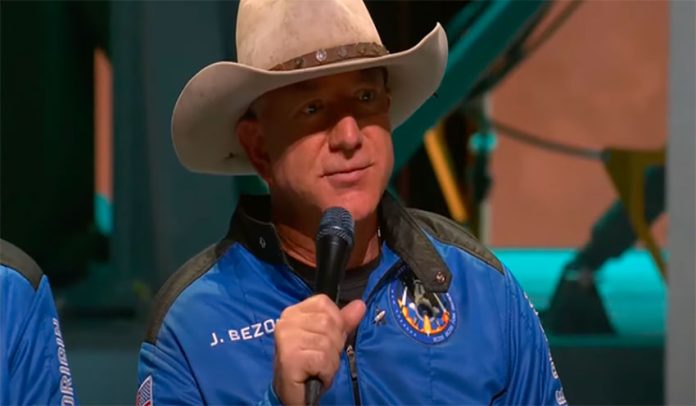A foundation created by Amazon founder Jeff Bezos, fresh off a flight to the edge of space, has agreed to finance the restoration of mangroves in Nayarit, Yucatán and Quintana Roo.
The World Wildlife Fund (WWF) announced the donation on Monday from the Bezos Earth Fund, without specifying the amount. Bezos is the world’s richest person with a net worth of US $177 billion, according to Forbes.
The areas which will benefit from the donation are the National Marshes of Nayarit Biosphere Reserve, the Rio Lagartos Biosphere Reserve and the Dzilam State Reserve in Yucatán, and the Yum Balam Flora and Fauna Protection Area in Quintana Roo.
Damage has been done to protected areas in recent years due to tourism and other development in what civic associations have termed “ecocides.” A report published Tuesday by Bloomberg showed that the Dos Bocas oil refinery in Tabasco is being build in an area that is home to four types of mangrove, which state oil firm Pemex had previously promised to protect.
The WWF said that mangroves are of vital importance to protect coastal communities as natural flood control systems and hurricane barriers, and also act as natural habitats for fish and crustaceans. The organization has promised to work with local communities over the next five years to “reduce vulnerabilities to climate change.”
The managing director of WWF Mexico, Jorge Rickards, voiced his appreciation for the donation. “WWF is deeply grateful for this transformative investment and for the impact this commitment will have on millions of people around the world,” he said in a statement.
Karen Douthwaite of WWF USA explained how the NGO would collate knowledge for the project. “WWF will work closely with communities and experts … to integrate their information with data from space satellites. This knowledge gathering will help us implement restoration and protection strategies,” she said.
Mangroves cover more than 905,000 hectares of coastline, according to data from the National Biodiversity Commission (Conabio), accounting for 6% of the world’s total mangroves. That makes Mexico the country with the fourth largest area of mangroves, behind only Indonesia, Australia and Brazil, according to Conabio.
Last Tuesday, returning from his trip to space, Bezos said the experience made him realize how fragile the Earth’s atmosphere is. “The atmosphere is so giant, but when you’re above it, what you see is that it’s really very thin. It’s a small, fragile thing and as we move around the planet, we’re damaging it,” he said.
With reports from El Financiero and Bloomberg
